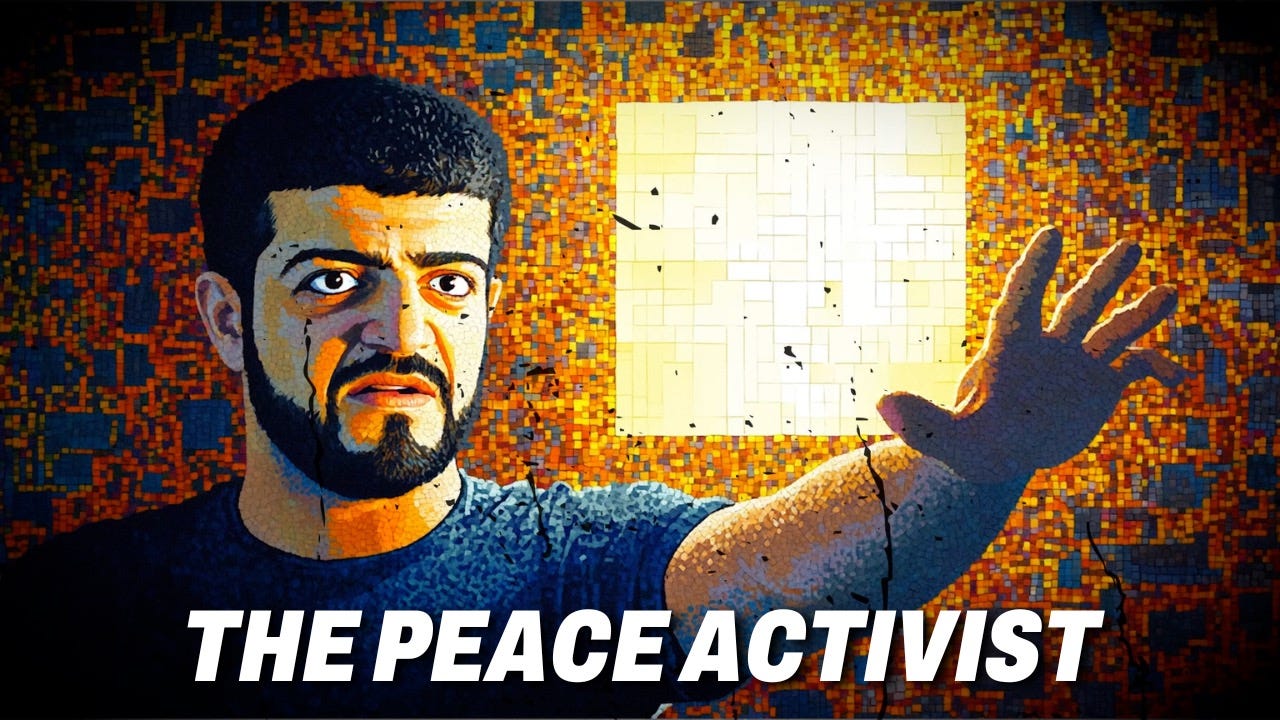A Lebanese Shi'ite Demands Peace with Israel
Episode 4 of “Hezbollah’s Hostages” underscores importance of people-to-people engagement
Hezbollah’s Hostages
Iran’s Billions Spent on Brainwashing Failed to Sway This Young Advocate for Peace
Making friends with young Israelis inspired Hussein to challenge Hezbollah’s propaganda. Then the terror group tried to kill him.
Hezbollah’s Hostages, CPC’s eight-part animated documentary featuring brave Arab opponents of the terror group speaking out, centered its first three episodes around Hezbollah’s brutal occupation of Syria — by airing testimony from one of its former fighters and Syrian victims of its trades in sex slaves and drugs.
Episode 4, debuting this week at The Free Press, brings the focus to Lebanon’s troubled relationship with the Jewish state. We hear the voice of Hussein, a young Shi’ite in Beirut whose education was dominated by Hezbollah’s propaganda machinery. He was taught to hate Israel and see its people as “zombies. . . spreading and growing, who aim to conquer the entire Arab region from the Nile to the Euphrates.”
Then, as a college student, Hussein participated in a series of exchange programs in the U.S. and Europe, where he met Israeli peers. The deep friendships they formed changed his understanding of the world. When he returned to Lebanon, he began advocating — at great risk — among his fellow Shi’ites for peace with Israel.
Click here to watch Hussein’s story in Hezbollah’s Hostages, Episode 4: “The Peace Activist.”
Hussein is not alone in his convictions. Lebanese of all sects fault Hezbollah for dragging the country into ruinous wars, and yearn to reclaim Lebanon’s storied role as “Switzerland of the Middle East” — a cosmopolitan capital, open to all its neighbors.
But when an activist like Hussein, striving to advance these views, actually starts to gain traction, Hezbollah does not hesitate to strike.
After the events described in today’s episode, Hussein and a friend were talking outside the latter’s Beirut home when a Hezbollah operative threw an explosive device at the two men. Though both escaped unharmed, Hussein knew that if he didn’t flee the country, there would be another attempt — and likely soon.
Hussein is now a political refugee in Canada, which gives him the freedom to emerge from the animated landscape of this series. His full name is Hussein El Hajj Hassan — and in the video below, he shares his views about the present war and prospects for Israeli-Lebanese peace.
An important aspect of Hussein’s story bears stressing: his friendships with Israeli youth, which first inspired him to become a peace activist in Lebanon, did not arise spontaneously; rather, they were nurtured through exchange programs designed to facilitate human encounters.
On this week’s anniversary of the bloody Hamas invasion of Israel’s south — a war that now engulfs seven Middle Eastern countries — efforts to foster people-to-people engagement between Arabs and Israelis may come across to some as naive or unimportant. Such work, after all, does not stop the machinery of hate which Iran and its proxies use to foment war.
But the deadliest naïveté lies with those who assume victory can be achieved through fighting alone. While Israeli forces degrade the capacity of Hamas, Hezbollah, and their allies to dominate their societies, the question of what emerges in their place will not be settled on the battlefield. People like Hussein Al Hajj Hassan will be needed to chart a different course — and the kind of proactive effort which helped expand his horizons will be essential to foster a similar evolution in others.
Near the end of episode 4, Hussein remarks, “I truly hope to find a way that, unlike how it took me a decade or two to go through this transformation, it will take other young people only a year, or six months.” This aspiration should be read as a call to action.
Make a tax-deductible contribution to the Center for Peace Communications by clicking here:



